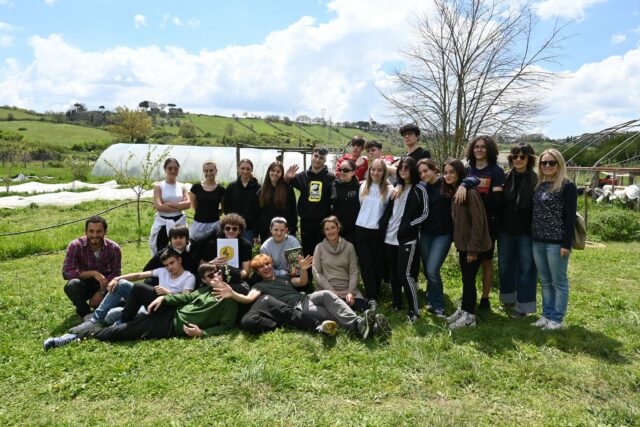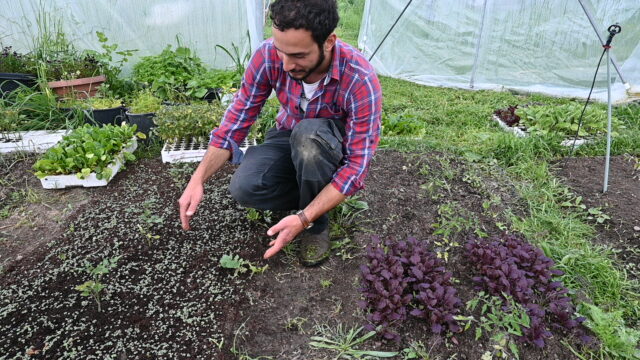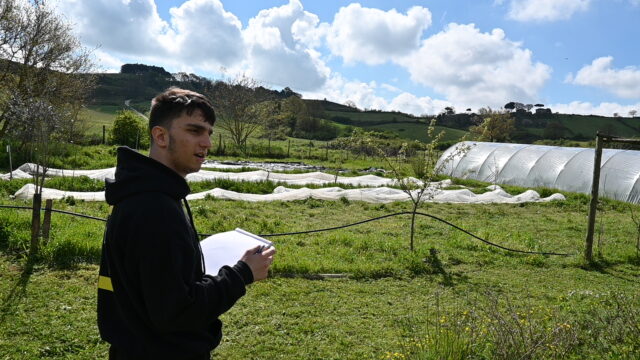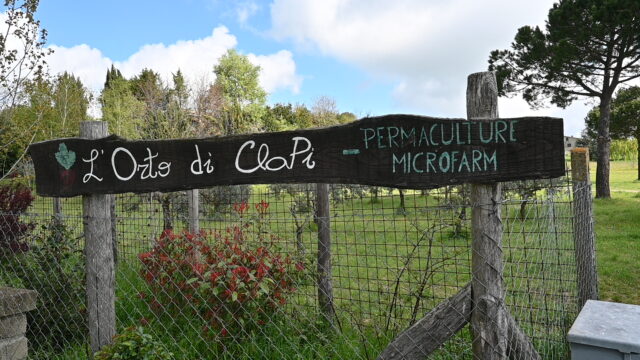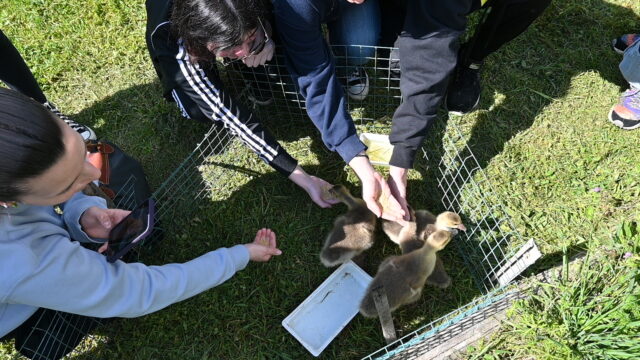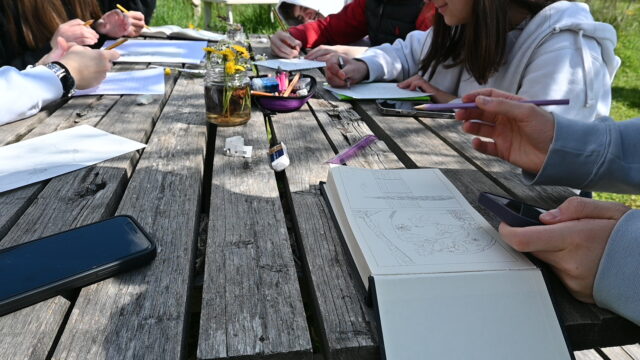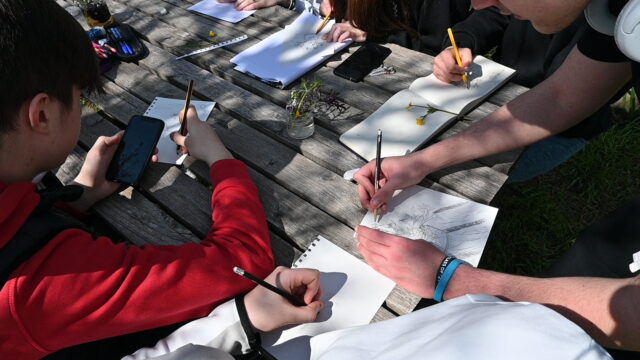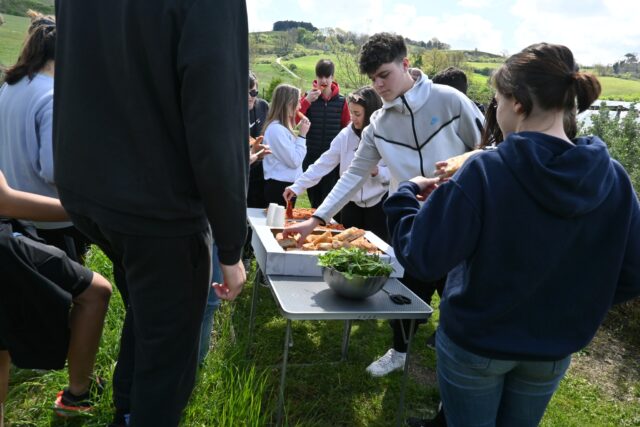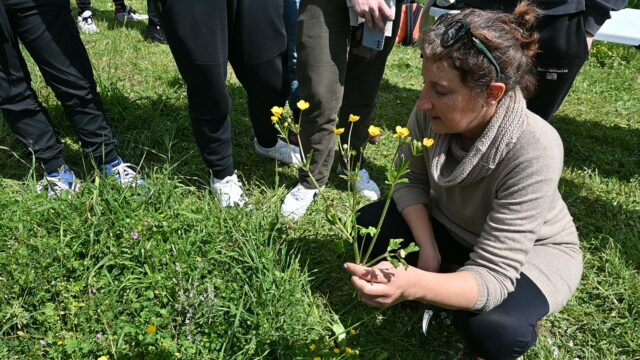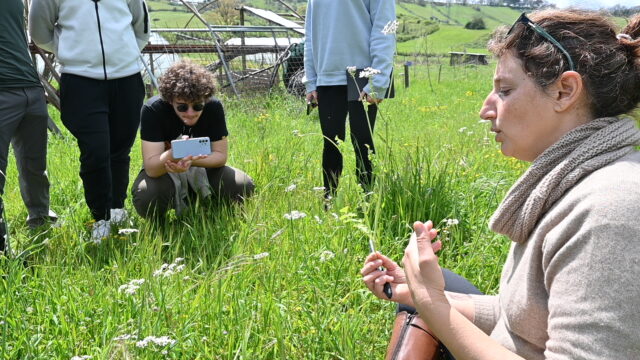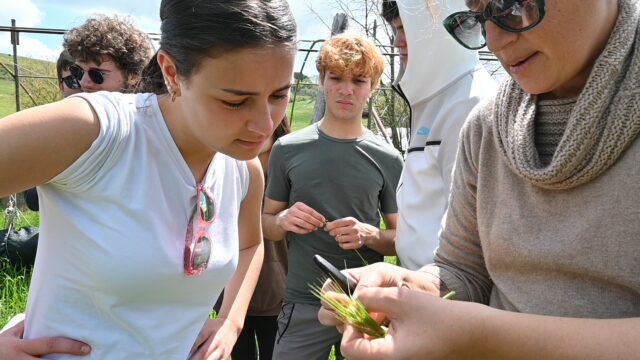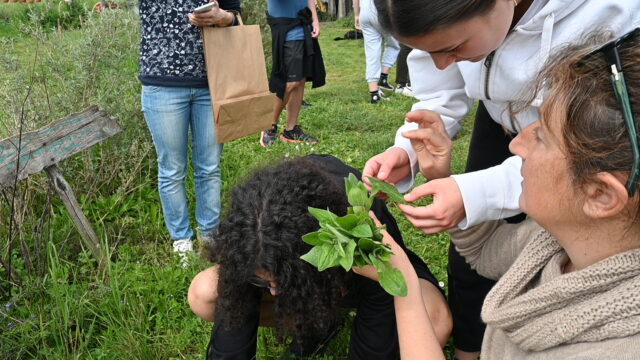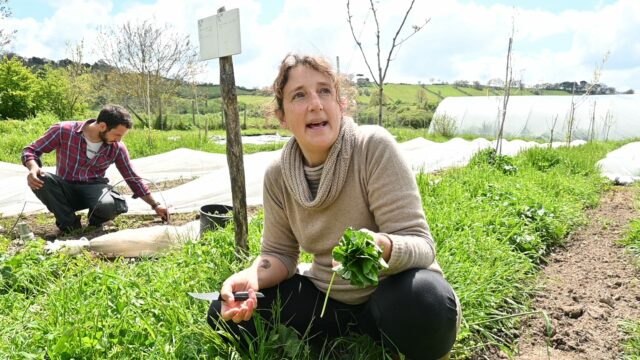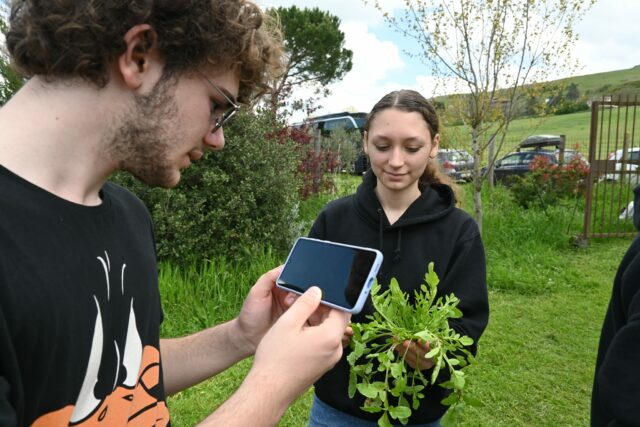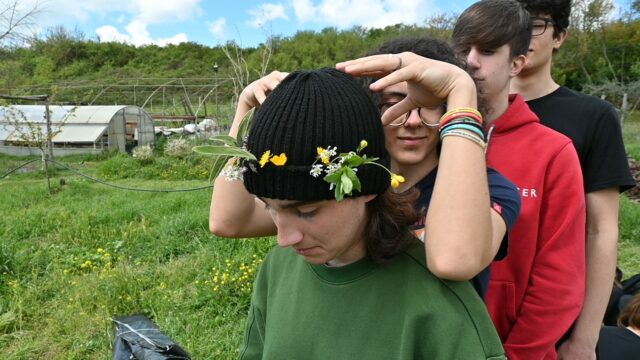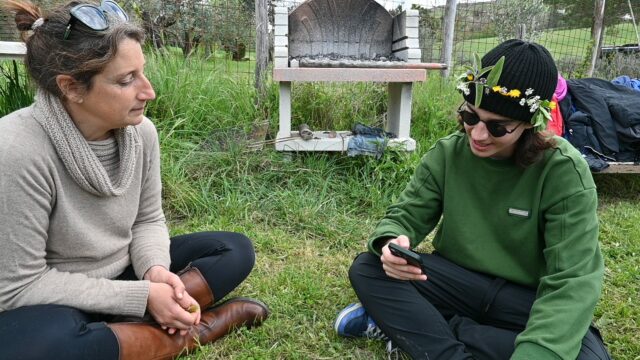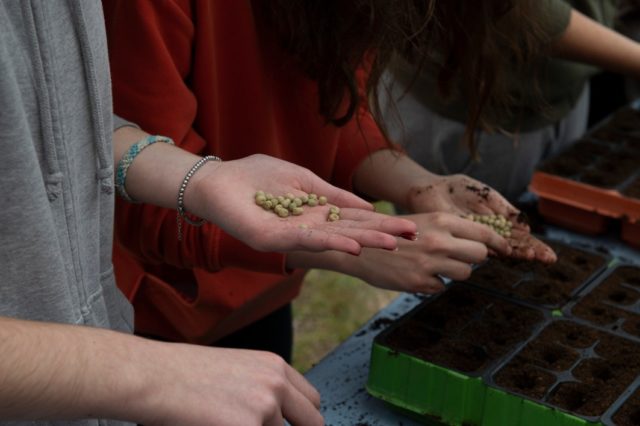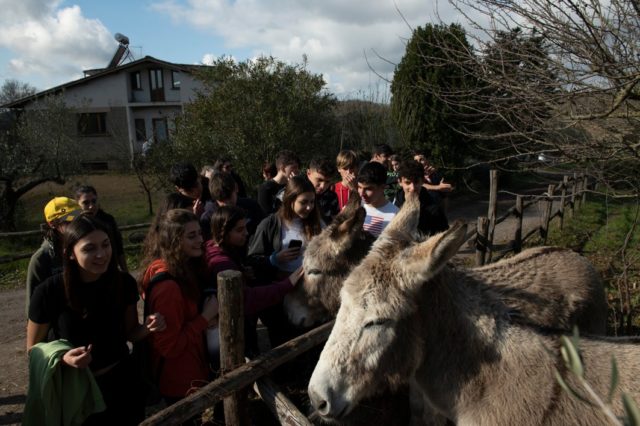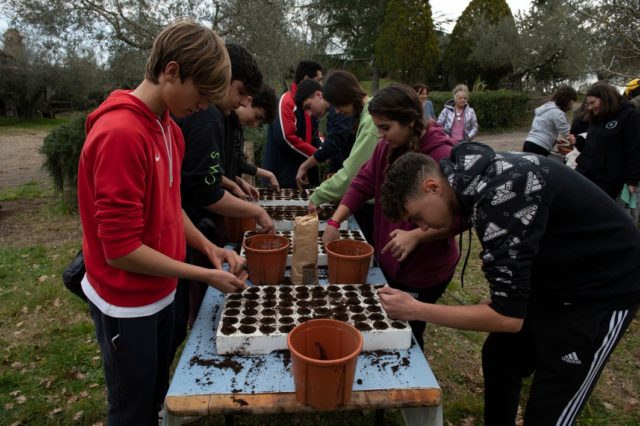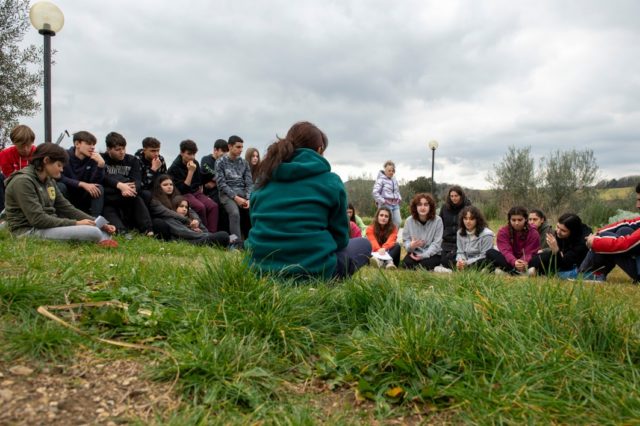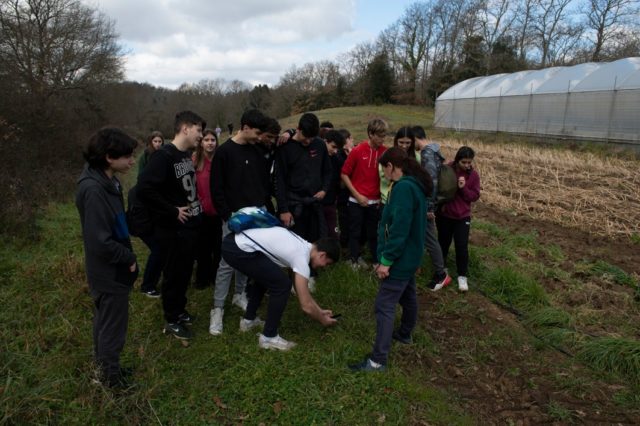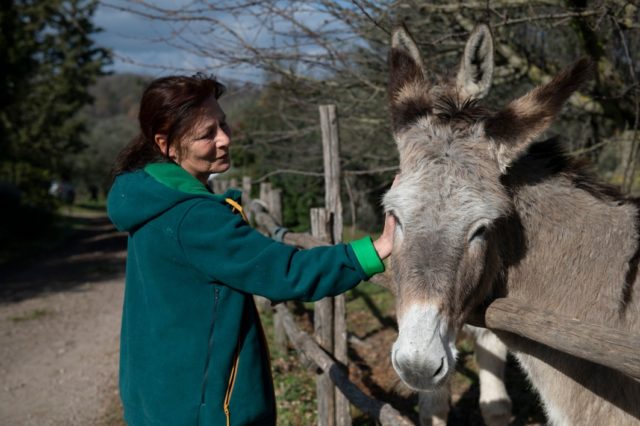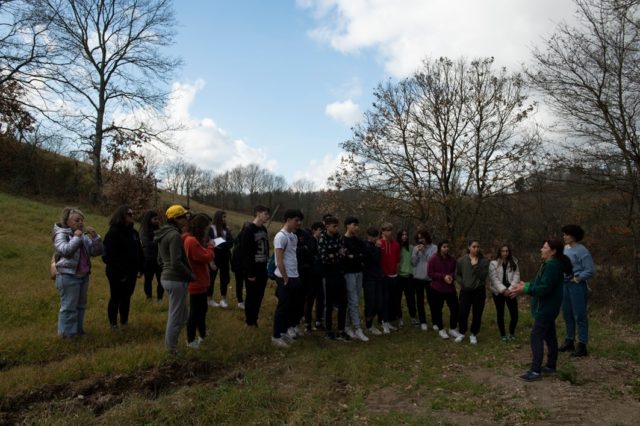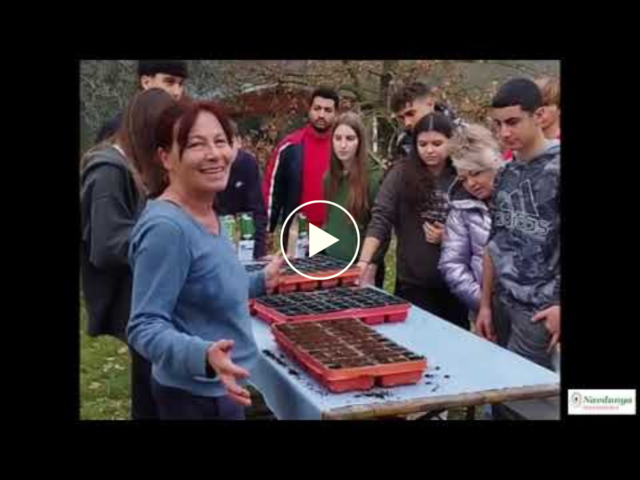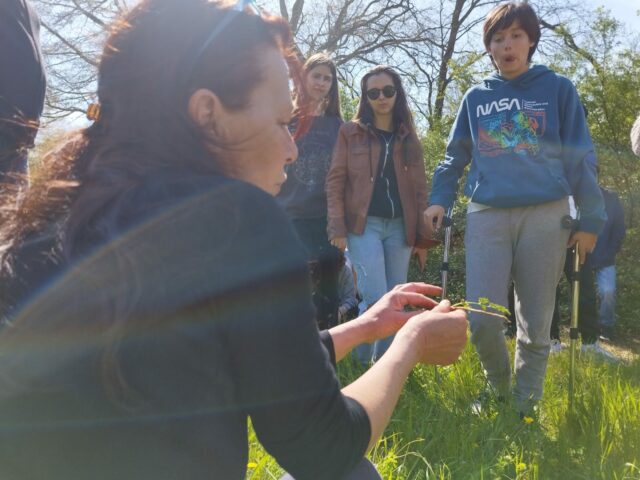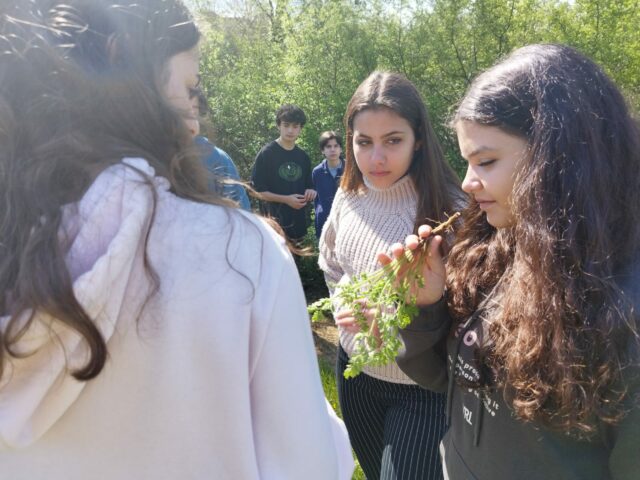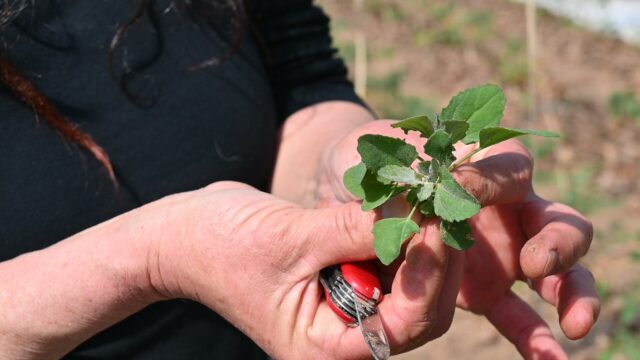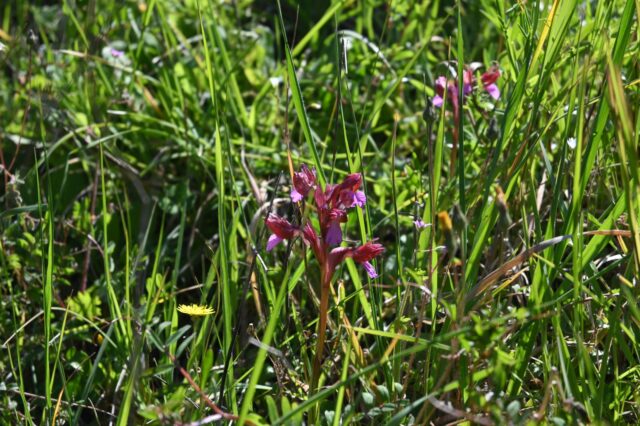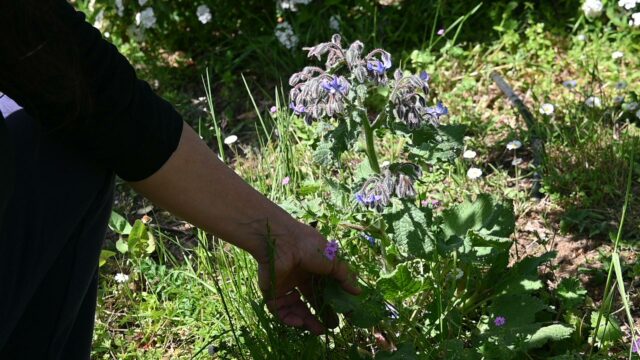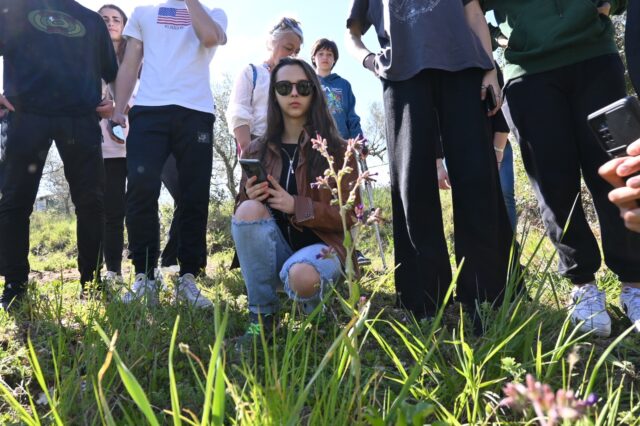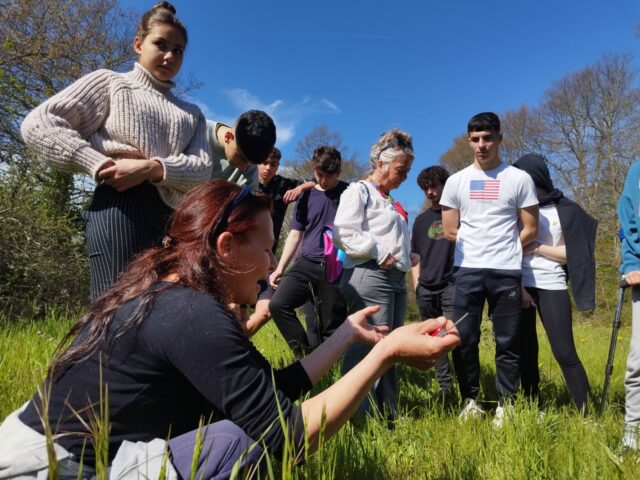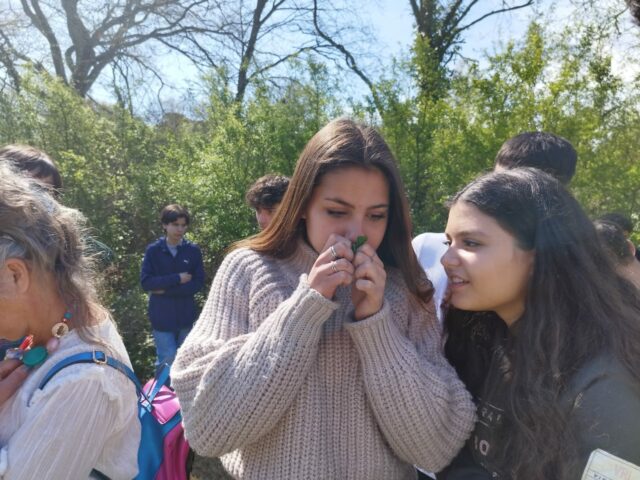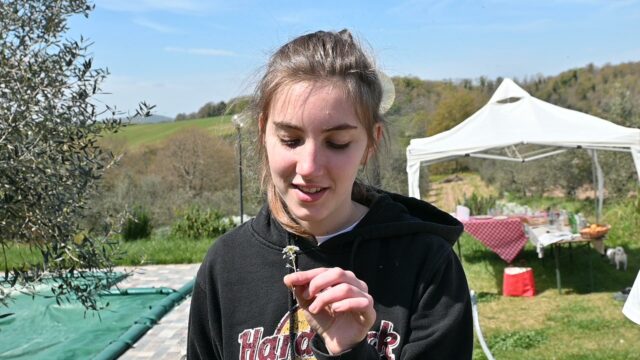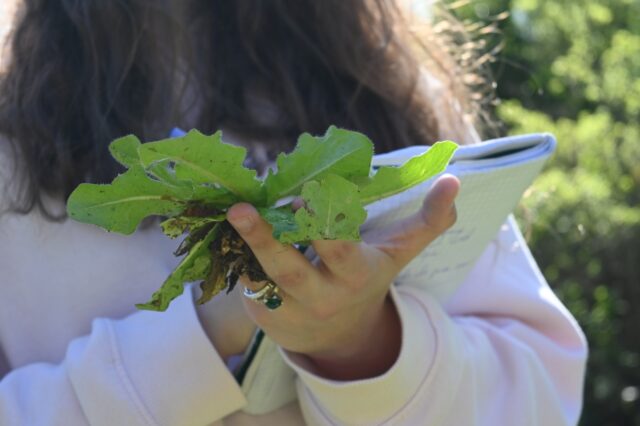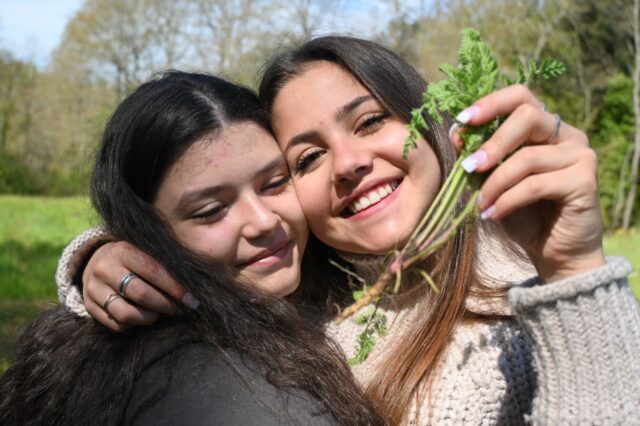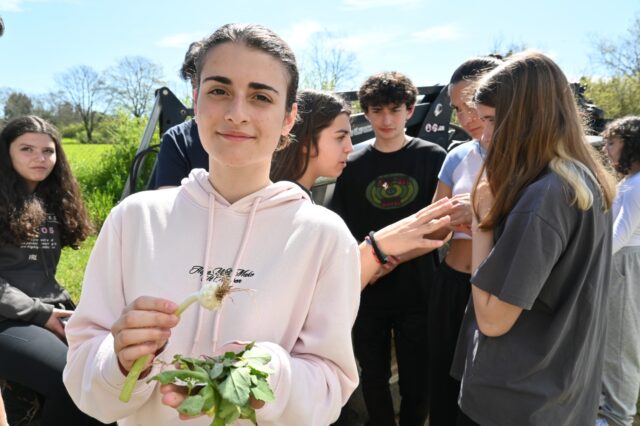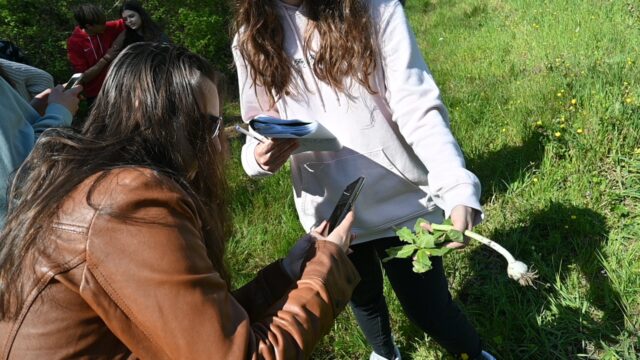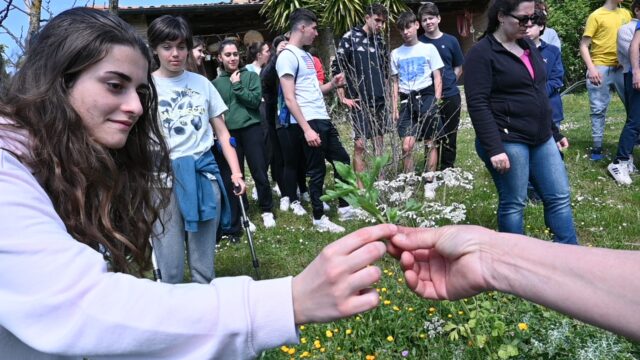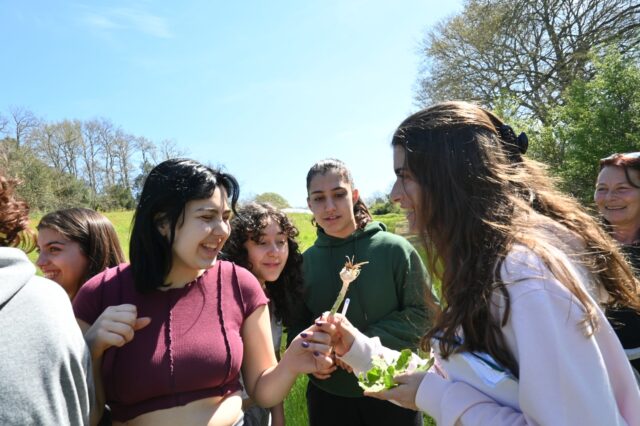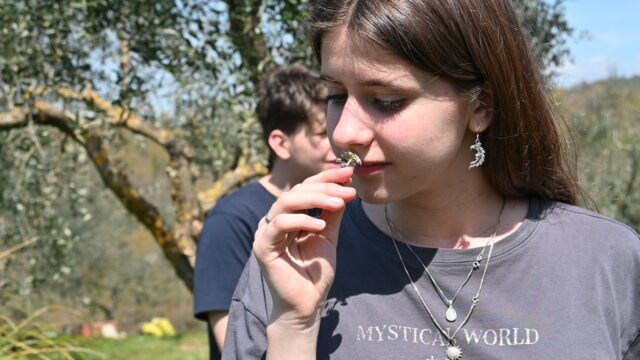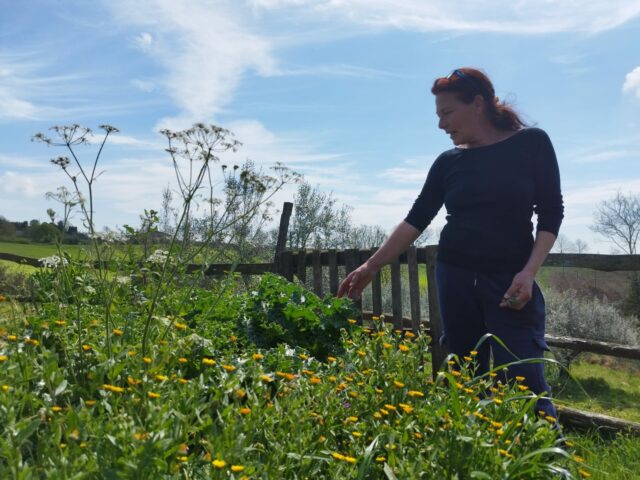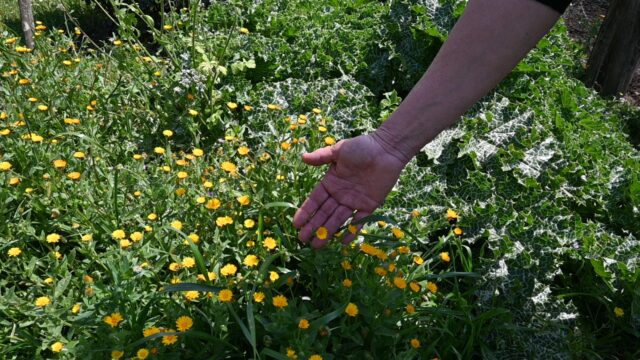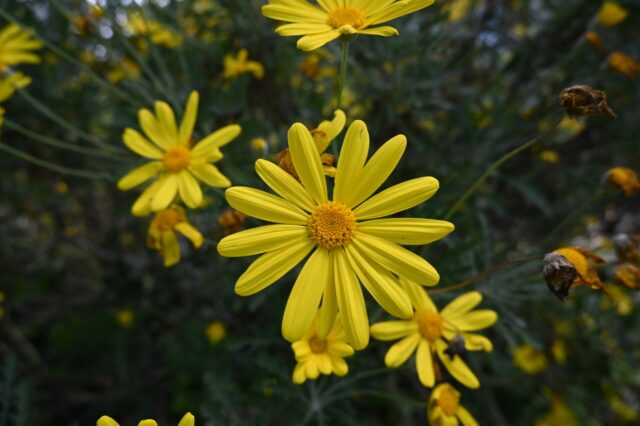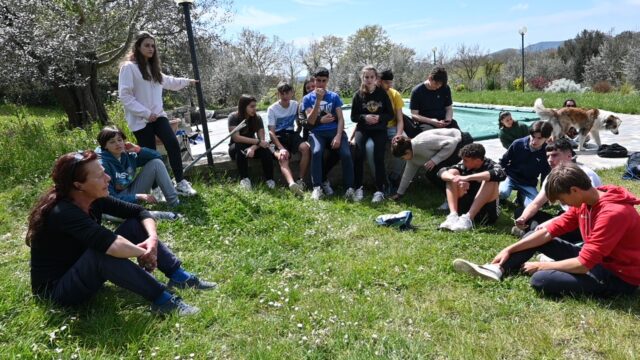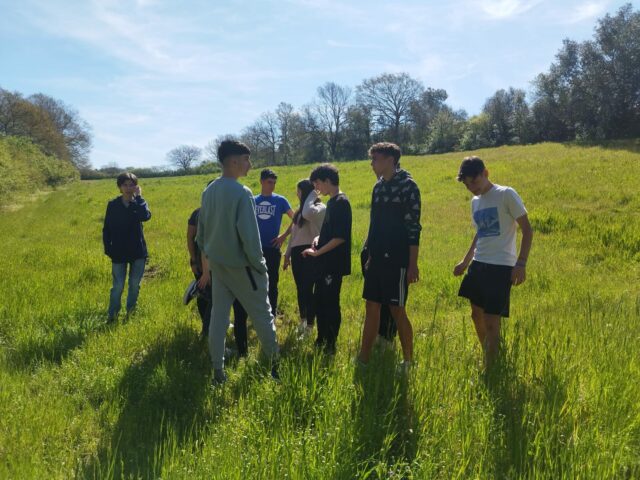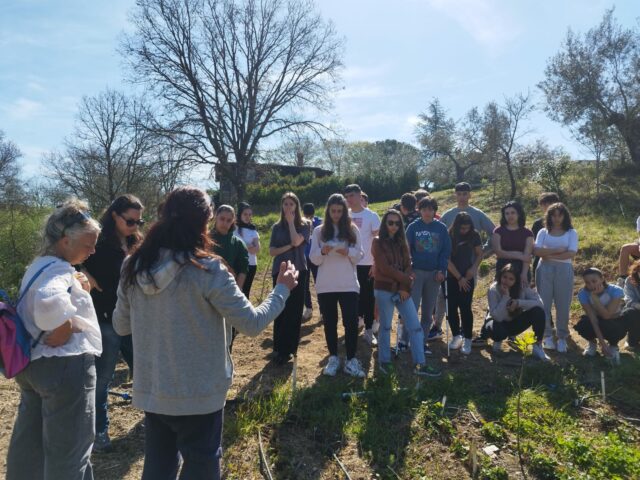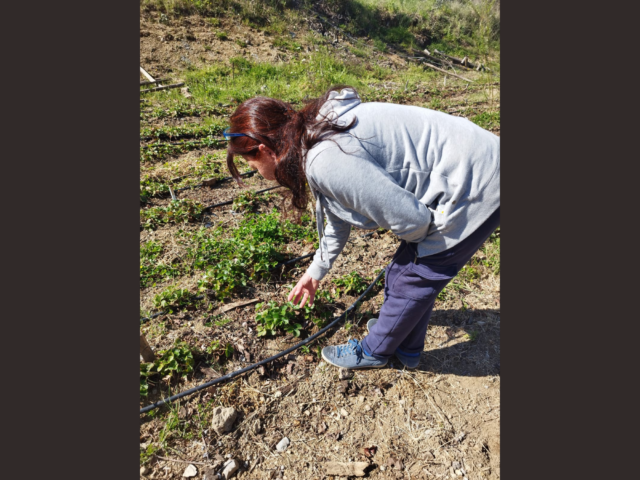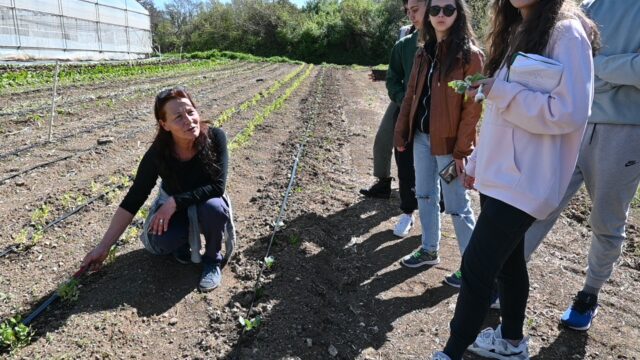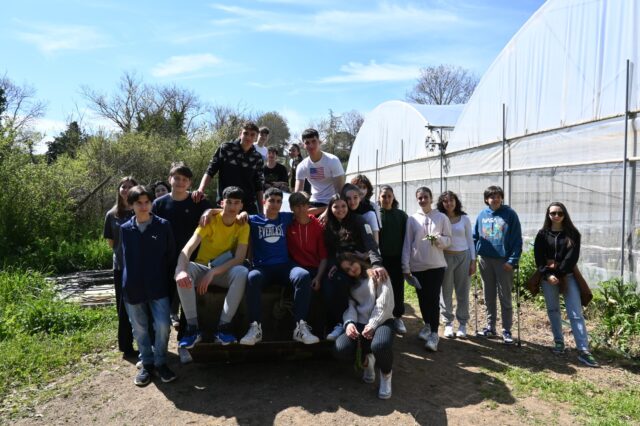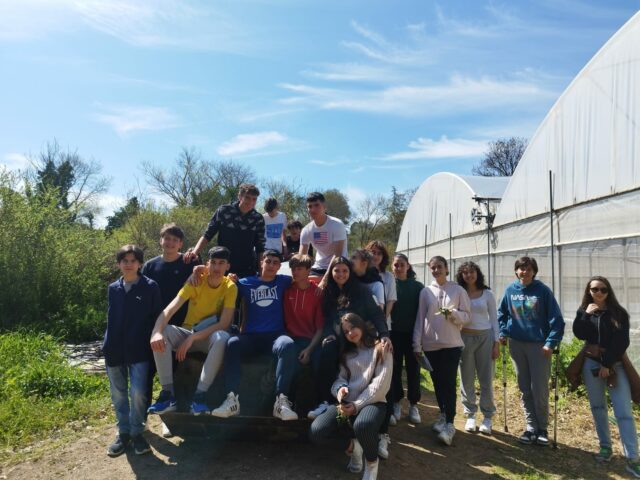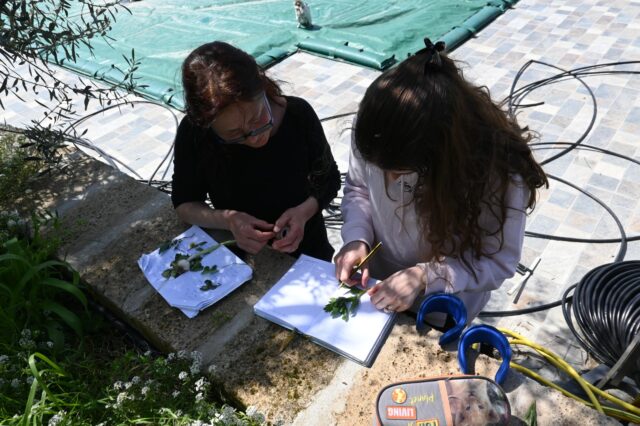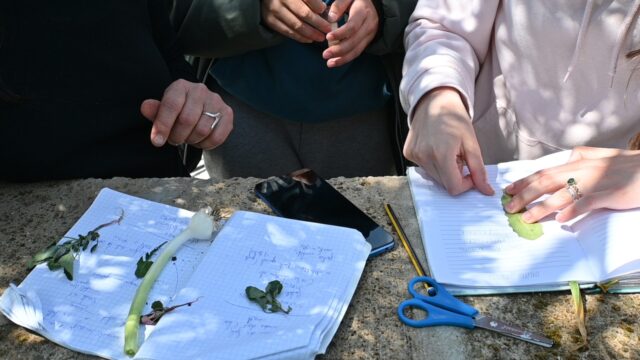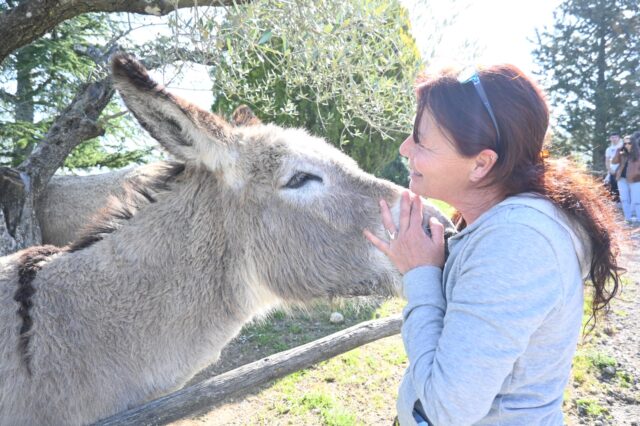Biodiversity is Life- Let’s discover and protect it together! is a new project by Navdanya International to engage new generations in protecting our biodiversity. The activities of this upcoming project are set to take place from January to December 2023 and will promote the participation of the youth in the custody and defence of the ecological heritage of the Bracciano and Martignano Lakes (Province of Rome).
The project represents the next step in Navdanya International’s on-the-ground work, which focuses on promoting healthy, fair and ecological agri-food systems.
Thanks to the collaboration between key local stakeholders, such as civil society organisations, local movements, organic farmers, surrounding municipalities, local schools, and individual citizens, Navdanya International has actively contributed to the creation of a biodistrict in the area of Lake Bracciano and Martignano.
Our project “Biodiversity is Life” arises in continuity with the creation of this Biodistrict, through educational activities that involve 70 young boys and girls, ages 13-18. Working with them to discover the connections between biodiversity, food systems, agriculture and climate change.
-
Agrihouse
-
L'Orto di ClaPi
-
Le Bricchiette
Videos and short reports: Seasonal visits at Organic Farms - "Biodiversity is Life!" Project
-
Explore the tabs above to watch the videos and read the short reports:
-
Agrihouse |
L'Orto Di Clapi |
Le Bricchiette |

Winter visit
English subtitles available (click/tap on the wheel)
On Monday 13th February, we began winter explorations to local organic farms, starting with amazing Agriturismo Agrihouse, organic farm located in the municipality of Bracciano.
Barbara and Gessica, two sisters who are running the family Agrihouse farm, guided the group in the discovery of their beautiful farm and its biodiversity.
The participants met the farm animals, discovered the different crops on the farm and observed the surrounding agro-ecosystem and its complexity.
Divided into groups, participants experimented a first attempt to catalogue and recognise wild biodiversity through the use of digital apps PlantNet, Herbarium, iNaturalist and Garden Answer.
They understood the importance of organic farming and the threats of climate crisis for wild & cultivated biodiversity, the role of animals in the farm ecosystem, the organic cultivation of olive trees and their pruning, observed the diversity of plants in the farm and tasted genuine and natural local products.
The young participants had the great opportunity to interact with local organic women farmers, talk to them and observe a local example of virtuous farming, developed in harmony with the surrounding environment, respecting biodiversity as well as human and animal health.
A small group of participants made a short video interview with the farmers, asking them questions about their work, organic farming, the difficulties they face, and the advantages of ecological versus industrial agriculture.
During each seasonal visit other participants will produce further interviews with farmers which will later be used for the public restitution of project results & outcomes.
Spring visit
On 5 April, with the young Biodiversity guardians, we visited the Agrihouse farm to continue to learn more about the importance of biodiversity for protecting local ecosystems, producing healthy food and promoting agro-ecological food systems.
We observed the evolution of the agro-ecosystem from winter to spring, the transformation of the landscape and vegetation, through the recognition of wild herbs and the careful observation of the soil.
With the participation of Lorenzo Maggi, a young agronomist, farmer and Permaculture expert, a workshop on the characteristics of soil and its fertility was held. We observed the differences between cultivated soil and forest soil, and learned to read the clues given to us by plants, the colour of the earth and the composition of the soil.
To conclude, a fantastic snack with biodiversity on the plate: genuine local products and bruschetta with wild herbs!
Summer Visit
On May 30th the young #BiodiversityGuardians visited the Agrihouse farm to explore and observe the changing ecosystem from spring to early summer.
They understood the importance of mulching to maintain soil moisture and control weeds. They also hand-weeded the base of young oak trees and arranged wood chips for mulching.
A workshop on crafting natural soap with olive oil produced on the farm was held by the farm managers, showing how to add lavender seeds, explaining the properties and greater sustainability of soap produced without the use of additives both for our health and for the protection of biodiversity.
Winter visit
English subtitles available (click/tap on the wheel)
On Friday, February 17, the second winter exploration of the Biodiversity is Life Project took place, discovering the organic farm L’Orto di ClaPi.
Together with the young biodiversity guardians, we visited the farm, managed by Lorenzo Maggi (28 years old), and located in Campagnano Romano, not far from Martignano Lake Park.
This is a microfarm, developed on one hectare of land and designed according to Permaculture principles, where a very rich concentration of biodiversity is thriving.
We explored the farm, delved into the principles and values of Permaculture and organic farming, experimented with the use of Apps for recognizing plant biodiversity, made cuttings of rosemary, sage, thyme, and other plants as well as sampled some of the Garden’s genuine products.
The young participants interacted with the farmer, asked questions, and learned more about the vital importance of farming while protecting biodiversity and the surrounding environment.
Spring visit
On 20 April, the young biodiversity guardians returned to explore L'Orto di ClaPi, a micro-farm designed according to permaculture principles.
The young farmer and agronomist Lorenzo Maggi guided us through the garden to observe the transformation of the agroecosystem with the arrival of spring, seasonal agricultural activities such as the preparation of the summer vegetable garden, transplanting and sowing.
The participants drew free-hand drawings of both wild and cultivated plants.
A workshop on wild herbs identification was also held by the expert Dafne Chanaz, who taught us how to recognise some of the most common edible plants in the area and their beneficial properties.
Once again, we observed how organic farming, agroecology and permaculture allow biodiversity to coexist and multiply within the cultivated environment, preserving the balance of the micro-ecosystem and its ecological value.
Workshop
We held a Wild Herb Recognition Workshop with university lecturer, cook and journalist Dafne Chanaz, an expert in peasant cooking, ecology, wild plant recognition and natural cures, who taught us how to recognize some of the most common edible plants in our area and their beneficial properties.
We observed and delved into the uses of oiosa (Tordylium apulum), poppy (papaver roheas), twigweed (raphanus raphanistrum), silene (silene latifolia), plantain (plantago lanceolata and plantago maior), wild leek (allium ampeloprasum), shepherd's purse (capsella bursa) and many others.
Once again we observed how organic farming, agroecology and permaculture allow biodiversity to coexist and multiply along with the cultivated environment, preserving the balance of the micro ecosystem and its ecological richness.
Winter visit
English subtitles available (click/tap on the wheel)
On Monday, 20 February, also the third winter exploration with the Young Biodiveristy Guardians took place at the Organic Farm “Le Bricchiette“, in Castel Giuliano.
Elena Rosa Carone Fabiani, farm manager, farmer, activist and expert in wild herb identification, walked us through the discovery of biodiversity within the agro-ecosystem of the Farm.
We observed the interaction between the wild environment of the forest and the vegetable garden and olive trees, delved into the principles and practices of organic farming, made seedlings of green beans, peas and chard that we will transplant in the spring, as well as tasted the farm’s genuine products.
Spring visit
On April 12, the young biodiversity custodians returned to explore the “Le Bricchiette” organic farm to observe the transformation of the agro-ecosystem with the arrival of spring and learn about seasonal farming in the vegetable garden and soil care.
We observed the technique of natural mulching of the vegetable garden with oak leaves, which are abundantly present in the farm's ecosystem, and the preparation of the summer vegetable garden, with some of the seedlings born from the seedbeds started by the students.
Elena, farm manager and wild herb expert, guided us to the discovery and identification of some of the most common edible wild plants in our area, explaining their uses and their importance for our well-being and that of the environment.
We thank Le Bricchiette Organic Farm for hosting us and for their work in protecting and multiplying biodiversity in the area.
Summer Visit
On May 31st, with the young #BiodiversityGuardians, we went back to the organic farm 'Le Bricchiette' to observe the evolution of the farm's activities and the transformation of the agroecosystem and vegetable gardens with the arrival of summer.
Elena, the farm manager, showed us the farm's seasonal activities in the vegetable garden and the greenhouse.
We observed the pollinatorse and the blooming of Summer Biodiversity in the fields.
The participants learned how to harvest some of the seasonal vegetables.
At the end of the activity we discussed the new knowledge gained through the project and created posters to classify the biodiversity we learned to know throughout the seasons.
We will return to visit Le Bricchiette Organic Farm in the autumn.
The area within the Bracciano and Martignano Lakes was recognised as a Natural Park in 1999, due to its high biodiversity. The region represents a fragile and precious ecosystem, as well as a fundamental water reservoir. In such a context, the promotion of organic farming and regenerative, ecological food systems is key for the protection of its natural resources, and living habitats.
Therefore, the project aims to directly and indirectly raise awareness for up to 3,000 citizens through communication, information and public involvement of the activities and materials produced by Navdanya International and the participants.
The ecological responsibilities of industrial agriculture, the increasing destabilisation of ecosystems and biodiversity loss are becoming ever more evident. Intensive, chemical-based agri-food systems are contributing to what scientists have defined as the sixth mass extinction, or the threat of extinction of more than a million species. In the last fifty years alone, the world’s wildlife has declined by 60%.
This means biodiversity, whether underground, or on the Earth’s surface and in the oceans, is declining in every area of the globe at an unprecedented rate.
For this reason, the project aims at a direct exchange between young people and local organic farmers, to foster a growing awareness of the ecological implications of food production and good practices to produce healthy, wholesome food in harmony with the surrounding ecosystem and its biodiversity.
Agroecology and organic farming represent the only real alternative to the harmful consequences of industrial agriculture, as they are based on co-evolution and reciprocity with nature. Nature becomes an integral part of the agricultural activity, instead of a commodity to be extracted and exploited.
Also read:
Introductory Workshop
On the 6th of February 2023, Navdanya International held the first introductory workshop with the youth, to illustrate the themes and activities of the project. Discussions were held about the territory, climate change, the ecological consequences of industrial agriculture and how organic farming & agroecology can help us protect biodiversity.
The Biodiversity is Life Booklet was presented (both in digital pdf version and hardcopy), to provide useful content, as well as instructions to guide participants throughout the project’s activities.
In the upcoming activities the young participants will discover biodiversity in the context of local organic farms. Experiencing direct observation of wild and cultivated biodiversity in organic agro-ecosystems.
Each group of participants will follow the activities of a single organic farm throughout the year, taking part in four explorations to the farm, one for each season.
During the exploration they will engage in several activities, such as: biodiversity documentation & classification through photos, short videos of the herbs, vegetables, trees, leaves, insects and animals they will observe; experimentation of biodiversity recognition through digital smartphone applications such as PlantNet, Herbarium, Garden Answer, iNaturalist; making short interviews with farmers; and experiencing farming activities (sowing seeds, planting vegetable plants in the garden, and many others).
Additionally, experts will provide specific workshops on wild herb recognition and soil biodiversity, health & fertility.
Data and material collected by participants throughout the activities and workshops will be later processed and included in a Biodiversity Map, elaborated in collaboration with Navdanya International to promote local organic farming, rural & sustainable tourism and regenerative local economies.
Organic farms involved in the project:
Azienda Fattoria biologica le Bricchiette, Castelgiuliano
Agriturismo Agrihouse, località Sambuco
Azienda l’orto di Clapi, Campagnano Romano
See you again soon with the Spring Explorations, to observe the transformation of ecosystems and biodiversity as the seasons change.


